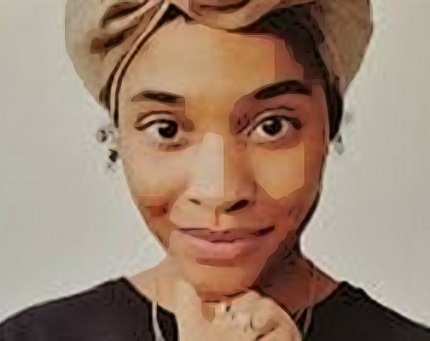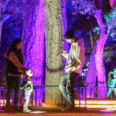
 I often fall into moments of resignation. It almost feels like apathy, but heavier. More desperate. Because while apathy has a sometimes attractive lack of care attached to it, resignation holds a lot of care, sucked dry from helplessness. In short, I care a lot about a situation, but I feel so deeply that there’s little if anything I can do, that I fall back into a helpless despair.
I often fall into moments of resignation. It almost feels like apathy, but heavier. More desperate. Because while apathy has a sometimes attractive lack of care attached to it, resignation holds a lot of care, sucked dry from helplessness. In short, I care a lot about a situation, but I feel so deeply that there’s little if anything I can do, that I fall back into a helpless despair.
Maybe that’s acceptance.
But there’s no peace in resignation. There’s no moment of surrender that signifies one letting go and letting God. Resignation also connotes abandonment. The closest I can compare it to is the feeling I get when reading Cormac McCarthy’s The Road—that this is a hard narrative to read, and there is probably more truth in it than I want to admit, and as the reader I cannot help the man or the boy or anyone else in any way. I can only watch it unfold and feel awful but know that I can’t—that I shouldn’t—look away.
I say all this because I’ve been feeling it pretty profoundly lately. To be honest, when the pandemic “began” I was in survival mode. I immediately stopped leaving my house for any nonessential reason (and admittedly have been policing my family to do the same), distanced whenever I have had to leave, and have picked up a number of hobbies to get me through the frequent moments of boredom and stir-craziness because the only place I’ve been beside the grocery store in the last four months is my house. For a good long while, it felt like the rest of California was doing the same—distancing, staying home, doing our part to flatten the curve. And it seemed like, for a while, the curve was flattened. But then the protests began. And, of course, I’m not speaking of the BLM protests, but the protests in rather affluent areas across California where people began to push back against distancing orders, staying home, and of course, wearing a mask.
I remember taking a drive on Mother’s Day to Newport Beach to see the ocean—not get out or go to the ocean, but just see it from the window. My family and I were astonished at the crowds we saw. The further down the coast we went, the more we saw hordes of people milling around without masks. Once we reached San Clemente, there wasn’t a mask in sight until we drove past an open dine-in restaurant crowded with chatting patrons being waited on by masked, frazzled-looking waiters. Remember, this was early May.
Another weekend in May we took a drive out to Manhattan Beach and it seemed the virus didn’t exist there either. From our car we saw people out in enormous crowds, a packed beach, and though some people we passed in the street had on masks, the vast majority did not. Of course, Manhattan Beach was one of the areas where the first anti-mask protests had erupted, so I can’t say I’m all that surprised.
A few days later George Floyd was murdered and the world exploded.
Then came the BLM protests, and to be honest, I’ve had mixed feelings about them. I admit that due to being high risk myself and worries about my parents’ health, I couldn’t justify it to myself to go out and join the throngs in the streets. My mixed feelings are not due to people being out in the middle of a pandemic marching for black lives, but that a situation so horrific happened in the middle of a pandemic (let alone at all) that made it necessary for people to rush the streets in solidarity with black lives. Maybe you won’t like my use of “necessary” attached to these protests. Many people think they’re a pointless waste. My take, though, is that they’ve been important and because of them we’ve seen great change, alongside greater tragedy. A few columns ago I wrote about how absurd and disturbing it was to see headlines of police brutality against black and brown people during a pandemic, but now those headlines and videos are commonplace and they’re garnering smaller and smaller responses.
For a few weeks, people cared in a visceral, passionate way about black lives. Social media was alight with posts and petitions. I was having conversations with friends that I never thought possible. Personally,as a black author, I saw engagement and following across my socials jump a considerable amount. But that’s died down, now.
At this point you’re probably wondering what the crux of this column is. To put it simply, it’s that in the last four-to-five months we’ve seen the shelf life of compassion in real time. When the pandemic started, people seemed to care—they were (mostly) doing what needed to be done to protect the most vulnerable among us. But as the stay-at-home orders and lockdowns wore on, people got tired. Their compassion waned. And soon freedoms like haircuts and parties and dining out mattered more than the life of another human being. Similarly, when George Floyd was killed the world was horrified and a stunning amount of people from all walks of life began speaking up and speaking out. And though my feeds are still pretty saturated with content on racial injustices, the names of the murdered, issues not found on the local news, and self-care tips, I know most feeds have gone back to normal. People cared, but then they got tired.
And I get it. Hearing about race all the time is exhausting. Seeing the horrors of injustice against black people and brown people—especially the subtle injustices that we live with every day, is heartbreaking. If I had the choice to opt out for a while, I probably would take it for some peace of mind, some rest. Similarly, people are tired of being home, of being cooped up. They miss their friends and the normality of life. Masks are uncomfortable and inconvenient. The back to school crisis is overwhelming. All of these feelings are valid. But does this mean we let these discomforts outweigh human lives? Does this mean that once compassion reaches the end of its rope, it’s okay to let it die? Because at least you tried? At least you did something, even if it wasn’t realistic for it to last?
Because it seems like that’s what’s happening.
To me, the way forward is clear: schools CANNOT reopen and children will learn from home this fall (or as long as is needed) to protect teachers and students and school staff, adults/parents are paid to stay home and work from home. Essential workers are given paid leave should they need it and reasonable time off so they aren’t pushed to make a choice between their job and their health. Rent is frozen and evictions suspended. We wear masks no matter what and savor the sweet relief of removing them in the car or at home like many have removed a bra after a long day. Our leader wears his mask and pushes his followers to do the same. We care about people, and do hard things born of that care. No matter who these people are, even if we think they don’t deserve it, we care. We do not put the economy and money over human lives. We can’t.
I don’t want to live in a world where four months of compassion is too much. Where four months of discomfort is too high a price to pay for the health and safety of another. My resignation tells me that the world that’s opposite of this current one isn’t possible, and no matter what I do or say or write, people aren’t going to care and there’s nothing I can do about it. People are going to value their own lives and comfort more than some nameless, faceless member of the population they’ve never met and have no tie to. And though so many of us are still doing the hard work to ensure black lives matter, to ensure children are freed from cages and families reunited, to ensure our Asian brothers and sisters are no longer discriminated against for this pandemic they did not cause, to ensure sacred land is respected and indigenous peoples are valued, to ensure that LGTBQA+ people are protected, cared for, and seen, too many of us are not. And one of the main reasons for the lack of care is because compassion is draining and tiresome and long-suffering. And humans aren’t built for that.
But you know what? We have the capacity for it. We have the capacity for it and so much more. So, can I invite you to be selfless? To be uncomfortable for a little longer? To be exhausted? Because, usually, hard things are worth doing. Good things are not easy. Right things are not easy.
As someone who’s walked with Christ her whole life, such a lesson is ground into my spirit—the right thing is hard, uncomfortable, exhausting. But you don’t have to be a believer or agree with me to do this. You can still choose to put others before yourself even if every part of your being says that doesn’t make sense. Because in the end it’s just as human to care as it is to be selfish, and it takes our intellect—our choice—to be better to actually be better.
So yeah, I’m feeling resigned. Big time. But I’m choosing not to act resigned. I’m choosing to keep talking and writing and doing because I believe it’s the right thing to do. Caring about others in the time of racial unrest, of political revelation, of global disease is the right thing to do, and we have to act on it.
So please, let’s let our compassion last far longer than it’s easy to act on it, because short-lived compassion isn’t really compassion at all.



















